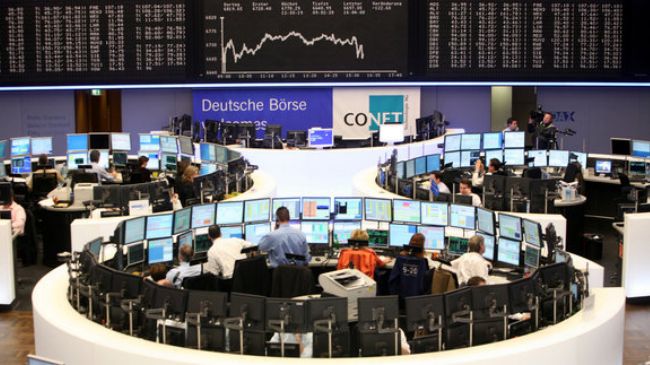by Michele Patri, AllianceBernstein
Confidence returned to European markets in 2013 after several turbulent years. As the continent continues to resolve its problems, we believe that European stocks offer compelling long-term return potential. But since short-term uncertainties remain, investors should consider balancing a strategic position with tactical short-term defense mechanisms.
Last year’s rally marked a psychological shift in Europe. Fears that the euro would collapse finally dissipated. As the risk perception stabilized for the continent in general—including troubled peripheral countries—investors began to focus on company fundamentals again instead of macroeconomic turmoil. Yet several years of pervasive stress left European equities trading at a significant discount to global stocks (Display).
This is great news for active managers. In this environment, investors who focus on companies—and not countries—can identify attractive opportunities across sectors and across the continent. Indeed, bond spreads between peripheral countries and the German bund have narrowed significantly, suggesting that the risk premium on these countries has declined dramatically. This is allowing investors to take a fresh look at the earnings prospects of companies in countries like Italy, Spain and Portugal, without worrying about a potential economic meltdown.
What’s Behind Improving Sentiment?
Sentiment has clearly improved. According to the Sentix index, European investor sentiment climbed from –16.8 at the beginning of 2013 to 11.9 in January 2014—close to a five-year peak. This sentiment has clearly been driven by increased confidence that the worst of the euro crisis has passed.
However, sentiment can be a double-edged sword—if it is not supported by real progress on the ground. For example, profit growth remains subdued in Europe, as stocks advanced 22% last year while earnings fell by 3% (Display). In contrast, US stocks rose by 27% as earnings gained 6%. 
And there are still real risks on the horizon, too. In particular, we don’t really know how markets will react to the removal of the ocean of liquidity created by central banks in response to the financial crisis. While the Fed’s tapering decision in December didn’t stop stocks from rising, this only highlights that we’re still in an intermediate phase of the great global monetary experiment, and nobody really knows how it will end.
Prepare for Polarized Outcomes
So today, when European markets are rising despite significant uncertainty, I think it’s important to adopt a flexible approach that is prepared for polarized outcomes. In other words, we want to capture the gains while being prepared for a downturn.
One way to do this is to split a portfolio between procyclical stocks and defensive holdings, in order to balance the return potential of an improving economic environment with protective positions for a potential shock. In addition, investors might consider focusing on solid companies, even if their stocks are a bit expensive. Companies with businesses that can deliver growth in both tranquil and tough conditions are worth paying a premium for in uncertain times.
But even strong companies with long-term potential can be affected by short-term drawdowns in the market. So to prepare for this, a beta hedging overlay can be very useful. It’s basically a defense mechanism that is designed to mitigate the damage when equity markets fall. The cost to implement this is modest and, when market conditions stabilize, this protection can be reduced, allowing an investor to capture more of the beta on the way up.
Think of this approach as like investing with an airbag. You may never need it—and it won’t get in the way while you’re driving—but if the market crashes, you’ll be glad you had it.
The views expressed herein do not constitute research, investment advice or trade recommendations and do not necessarily represent the views of all AllianceBernstein portfolio-management teams. AllianceBernstein Limited is authorized and regulated by the Financial Conduct Authority in the United Kingdom.
Michele Patri is Portfolio Manager, European Flexible Equities, at AllianceBernstein.
Copyright © AllianceBernstein














